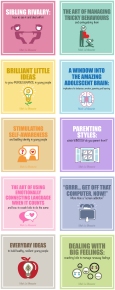Presentation 16
Savvy ways to understand and work with tricky student behaviour;
through positive behavioural support lenses
Mark Le Messurier for 'Learning 4 All' - http://learning4all.com.au
Synopsis
"It remains tough to escape the traditional disciplinary consciousness we've inherited in schools, especially in moments when the behaviour of students (or their parents) becomes challenging. A quick retaliatory response is often inspired by what is embedded in our psyche. Yes, the concept of genuinely and steadily promoting a positive, relational approach is still a delicately poised concept in Australian education."
Mark Le Messurier, TEACHING TOUGH KIDS, 2011
Winner of the international NASEN book awards -
'best book to promote professional development'
This presentation is for educators who choose to connect to students. For those who wish to attach students to each other, unite them with the school culture and to learning in an endeavour to link them to healthier futures. Anything we do with 'student behaviour' has to be framed within a healthy social and emotional context. It starts with us, and our desire to make a difference.
Mark wants to nudge our capacity to respond wisely to tricky student behaviour. He aims to view student 'misbehaviour,' and our response to it, through two 'Positive Behavioural Support Lenses.' Tricky behaviours are often tough to change because, over time, a faulty logic kicks in and convinces the student to believe their behaviours are working for them. Unwanted behaviours can be extinguished or reinforced by how we choose to react and connect with students as well as how we manipulate the environment.
Positive Behavioural Support Lens - The Four Goals of 'Mis'behaviour
Dealing with misbehaviour, and the emotion that accompanies it, is often stressful for teachers. Educators who do best learn to live by Adler's and Dreikurs' 'Four Goals of Misbehaviour'. They say children misbehave for one of, or a combination of, four reasons; a struggle for attention, power, revenge or a display of inadequacy. Effectively applying the learning from the 'Four Goals of Misbehaviour' requires educators to progressively reconstruct their thinking because for a long time we were caught up in a format of 'behaviour management' where school policy worked and it was not important about how we related to students. Then suddenly, the world changed!
Key learning points;
- A reflection - the tricky students, who are they?
- What is 'mis'behaviour?
- The Four Goals of 'Mis'behaviour (or mistaken behaviours)
- An practical tool to understand behaviour
- Hypothesizing - what is the 'Mis'behaviour about?
- A three point plan to effectively respond to 'student misbehaviour'
- Exploration of the conclusive link between a child's 'Mis'behaviour and their poor or damaged attachment to a significant adult
- Tips and exercises for adults to build relationships and attachment with children and teens
- Easy ideas to create calm and relational classroom
I can't not address Autism and ADHD in this workshop today. Why? Because they carry some unique CORE PROCESSING differences that influence behaviours - sometimes markedly. And, when we understand these CORE PROCESSING differences we suddenly find ourselves in a far more influential position.
The remarkable impact of Executive Functioning difficulties are notoriously underrated, and because of this, interventions are often misjudged or grossly undervalued. Early intervention to develop efficient habits and skills are very helpful. As a rule, it helps to give direct instruction, frequent reassurance and continuous feedback. Let's explore!
Positive Behavioural Support Lens - The SOCIAL CONTROL Window
The Social Control Window can be both inspiring and confronting. Treat yourself and use this time to do a little soul searching some tweaking and adapting. The Social Control Window challenges us to think about our personal and professional management style; how we work with students, how we control them, how we use our authority and what we really look like to kids, parents and staff - especially in heated moments. Without this pivotal understanding it is too easy to instinctively react to tricky student behaviours in ways that are not helpful to anyone.
Key learning points;
- The SOCIAL CONTROL WINDOW generates four BASIC leadership styles -
- Punitive style - controlling, bossy, micromanaging, authoritarian and autocratic
EXAMPLE: 'You have sixty seconds' - Neglectful - disinterested, uninvolved, absent, passive and submissive
EXAMPLE: 'Remember, Brad?' - Permissive - indulgent, lenient, rescuer, overly protective and excuses behaviour
EXAMPLE: 'A wildly popular dance' - Authorative - leadership, relational, assertive enables growth and a mutual communicator
EXAMPLE: 'Connecting and calming classrooms' - A sustained effort in schools comes at a personal cost to every educator
- What is your mental health plan? You'll need one to keep your life in good balance otherwise your 'use by' date is in question
- Healthy, common-sense ideas about how to mindfully manage our thinking and connecting to students is all we have
Participants will leave with two highly constructive Positive Behavioural approaches ready to be used and shared with staff. Mark argues that by recognising the 'Tricky Students' and finding ways to work more successfully with them we will reach many, many more young people, and schools will become better places for everyone.
Click the links below to download:
- 'Savvy ways to understand and work with tricky student behaviour'
- Presentation notes
- HANDOUT: chapter 5, TEACHING TOUGH KIDS, Creating the best start for challenging kids.
'Inside Tough Kids with oppositional styled behaviours'
File downloads
Learning 4 ALL morning final
- Video: Dr Jenny Suther's film clips (soon)
- Word document: Handout - Chapter 5 Inside Tough Kids with oppositional styled behaviours
- Word document: Handout Group TASK ROLE activity
- Word document: Handout TASK ROLES
- Word document: Learning 4 All Morning Notes
- Power point: Learning 4 ALL morning
- Video: The Cracked Pot
Learning 4 ALL mid morning final
- Power point: Learning 4 All mid morning
- Word document: Learning 4 ALL mid morning Notes
Learning 4 ALL afternoon final
- Power point: Learning 4 ALL Afternoon
- Word document: Learning 4 ALL Afternoon Notes
- Video: ABC Pannic video clip
- Video: PNBHS Haka for Mr. Dawson Tamatea's Funeral Service
Check this page over the next day or two to see when video links are available












